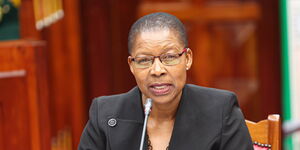G4S, one of the leading global integrated security companies, has announced plans to fire about 400 employees in the next six months.
In a letter addressed to the Ministry of Labour and Social Protection, the firm attributed the decision to diminished business opportunities occasioned by the harsh economic times.
According to the security company, the adverse economic condition resulted in a reduction in the firm's revenue and subsequently led to high costs of running its business.
“We regret to advise the Ministry of Labour and Social Protection of the organization's intentions to declare several positions redundant. This letter therefore serves as a notice of redundancy under the provision of the Employment Act, 2007 Section 40,” read part of the notice.
“The redundancy exercise is likely to affect approximately four hundred (400) employees based in various locations in Kenya in both categories of management and unusable cadres between 04 November 2024 and April 2025,” the statement added.
However, despite announcing the planned mass layoff, the security company underscored its commitment to continue with its operations within the Kenyan market.
The company further assured the government of its intentions to implement stringent solutions that would help it secure employment for Kenyans while sustaining positive business performance.
“We wish to assure the Ministry of Labour that we shall adhere to all the minimum legal requirements stipulated for this kind of action,” the letter read in part.
The announcement by G4S has drawn the attention of many Kenyans including economists and the political class who have expressed mixed reactions towards the decision. While some viewed it as a painful but necessary business decision, others shifted blame to the government.
While opining on the matter, the Chairperson of the Presidential Council of Economic Advisors David Ndii termed the move a normal situation that takes place in most economies.
"In a market economy, businesses start and fail every day. Some hire some fire. Some grow some shrink. We measure economic performance by aggregates i.e. macro level outcomes. As they say, one swallow does not make a summer. Further evidence why the law should be a second degree," Ndii commented.
Ndii was forced to pronounce himself on the matter after Kenyans online accused the government of inverted priorities.












